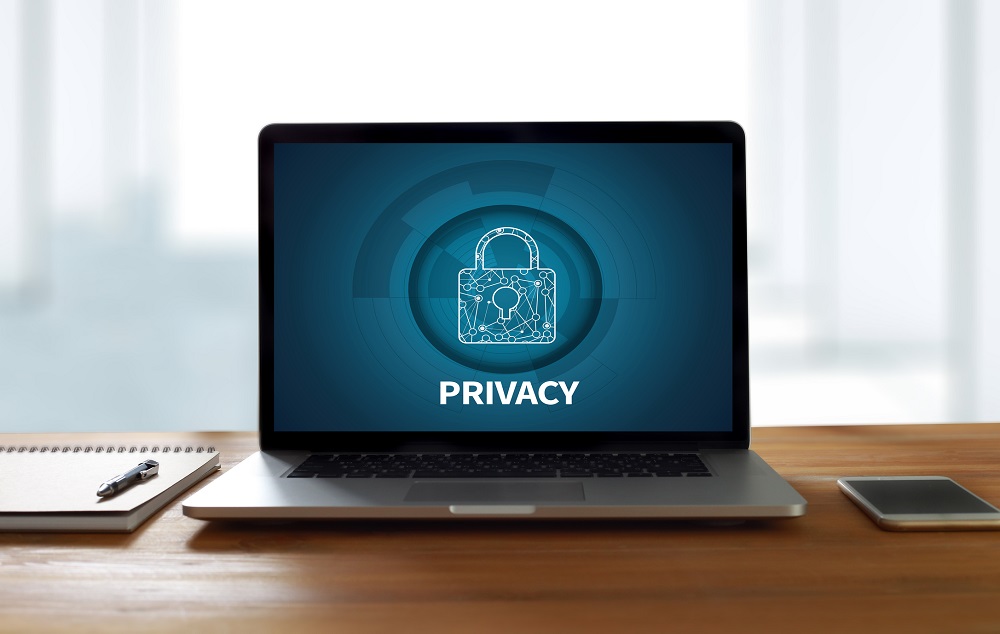What is privacy computer?
s on the network, and you can’t use your PC for file and printer sharing. Your PC will be slightly more protected from hackers.
Private network.
Use this only if you trust the network you’re connected to. When you connect to a new network, Windows asks you to select a network location (private or public).

What is computer privacy and security
Computer security and privacy often overlap; however, they do pertain to two different things. Privacy is your personal information and how you allow it to be accessed and viewed. In contrast, security is the protection of this data and information.
What does privacy do
Generally speaking, privacy includes the right: to be free from interference and intrusion. to associate freely with whom you want. to be able to control who can see or use information about you.
What is violation of privacy in computer
Description. Mishandling private information, such as customer passwords or social security numbers, can compromise user privacy, and is often illegal. Privacy violations occur when: Private user information enters the program. The data is written to an external location, such as the console, file system, or network.
Is computer privacy necessary
Privacy protects our information we do not want shared publicly (such as health or personal finances). Privacy helps protect our physical safety (if our real time location data is private). Privacy helps protect us as individuals, and our businesses, against entities we depend on or that are more powerful than us.
Why is computer privacy important
Internet privacy is important because it gives you control over your identity and personal information. Without that control, anyone with the intention and means can manipulate your identity to serve their goals, whether it is selling you a more expensive vacation or stealing your savings.
What is difference between security and privacy
Privacy typically refers to the user's ability to control, access, and regulate their personal information, and security refers to the system that protects that data from getting into the wrong hands, through a breach, leak, or cyber attack.
Why should you turn on privacy settings
Settings help you indicate whether or not you give consent for the collection, use and disclosure of your personal information. That's why it's important to choose and set privacy settings that you are comfortable with on all social media accounts, online services, devices and browsers.
What are some examples of computer privacy
Don't leave your name, date of birth, email address, and phone number on just about any website. Also, make sure you check your credit reports regularly. If anyone is using your credit card, you must know on time. Your passwords should be strong and should not be easily guessed.
What are the three computer privacy issues
But the “top 3” privacy issues with most data breaches are “tracking, hacking and trading.” Let's take a closer look at each one and see how it impacts your privacy.
What are some examples of invasion of privacy
Types and examples of invasion of privacyMisappropriating a person's name or likeness. This occurs when a business uses a person's name or image in marketing materials without consent.Intruding on someone's seclusion.Portraying someone in a false light.Publicly disclosing private facts.
Should I set my computer to private or public
Public network (Recommended).
You should use this in most cases. Your PC will be hidden from other devices on the network. Therefore, you can't use your PC for file and printer sharing.
Why do I need a privacy program
Protecting personal data: Data privacy programs help organizations protect the personal data of their customers, employees, and other individuals, which is essential for maintaining trust and confidence in the organization. Not to mention it's just the right thing to do for your customers.
What is an example of data privacy
Data privacy is typically applied to personal health information (PHI) and personally identifiable information (PII). This includes financial information, medical records, social security or ID numbers, names, birthdates, and contact information.
What are the risks of data privacy
These include: Theft or manipulation of sensitive or private information, such as financial or health records. Virulent computer viruses that can destroy data, damage hardware, cripple systems and disrupt a business' operations. Computer fraud.
Can you have both security and privacy
You can have security without privacy, but they go better together. For example, a company may write into their privacy policy that they can share or sell a user's data. In that case, privacy is less protected, but the organization's systems and the systems of those they sell the data to can be secure.
Why is privacy better than security
Data privacy is more important than security or utility because it protects the confidential information of individuals and businesses. This information can be used to commit identity theft, fraud, or other crimes.
When should I set privacy settings
When you establish and use contact lists and online friends' information, use privacy settings to ensure you do not expose the personal information of other people. You should be able to control who sees your friends list, for example. Look for settings for voice recording and messaging recording.
What do privacy settings mean
What are privacy settings Privacy settings are controls available on many websites and apps to limit who can access your profile and what information visitors can see. When online profiles are created, it's often assumed that they will be private by default.
How do I get privacy on my computer
To do this, select Start , then open Settings , and select Privacy & security . You'll see a list of general privacy options. There are links to specific privacy settings on the left of the page. For more info, see Data collection summary for Windows.
How do I keep my computer private
Keep your computer secure at homeUse a firewall.Keep all software up to date.Use antivirus software and keep it current.Make sure your passwords are well-chosen and protected.Don't open suspicious attachments or click unusual links in messages.Browse the web safely.Stay away from pirated material.
What is an example of a privacy issue
In addition, companies often share or sell personal information to other companies. Identity theft is also an important privacy issue. Other examples of IT privacy issues include cookies, spyware, and Employee Internet Management software.
How can I protect my computer privacy
How To Protect Your Online PrivacyCommit to sharing less online.Use strong, unique passwords and two-factor authentication.Tighten privacy settings for your online accounts.Purge unused mobile apps and browser extensions.Block search engines from tracking you.Browse online with a secure VPN.
What are the 4 types of privacy
The four Ps of privacy are people, places, platforms, and purposes. Each one is covered in more detail below.
What are the most common types of invasion of privacy
The four main types of invasion of privacy claims are:Intrusion of Solitude.Appropriation of Name or Likeness.Public Disclosure of Private Facts.False Light.
Why should I use private mode
When you use Private Browsing, the details of your browsing aren't saved, and the websites you visit aren't shared with your other devices. Safari won't remember the pages you visit, your search history, or your AutoFill information.



0 Comments